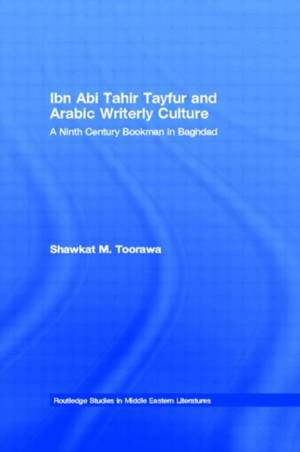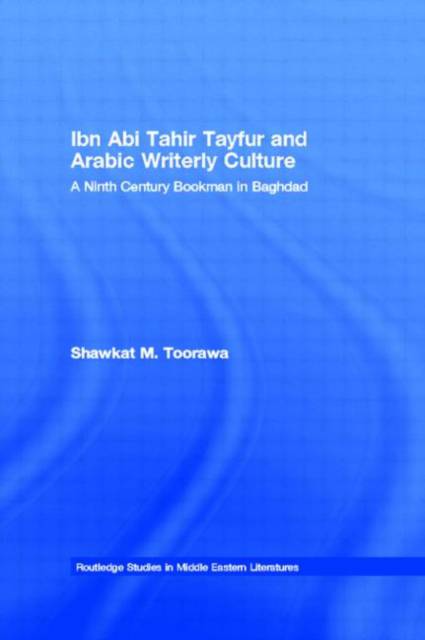
- Afhalen na 1 uur in een winkel met voorraad
- Gratis thuislevering in België vanaf € 30
- Ruim aanbod met 7 miljoen producten
- Afhalen na 1 uur in een winkel met voorraad
- Gratis thuislevering in België vanaf € 30
- Ruim aanbod met 7 miljoen producten
Zoeken
Ibn Abi Tahir Tayfur and Arabic Writerly Culture
A Ninth Century Bookman in Baghdad
Shawkat M Toorawa
€ 72,95
+ 145 punten
Uitvoering
Omschrijving
Toorawa re-evaluates the literary history and landscape of third to ninth century Baghdad by demonstrating and emphasizing the significance of the important transition from a predominantly oral-aural culture to an increasingly literate one. This transformation had a profound influence on the production of learned and literary culture; modes of transmission of learning; nature and types of literary production; nature of scholarly and professional occupations and alliances; and ranges of meanings of certain key concepts, such as plagiarism. In order to better understand these, attention is focused on a central but understudied figure, Ibn Abi Tahir Tayfur (d. 280 to 893), a writer, schoolmaster, scholar and copyist, member of important literary circles, and a significant anthologist and chronicler. This book will appeal to anyone interested in Arabic literary culture and history, and those with an interest in books, writing, authorship and patronage.
Specificaties
Betrokkenen
- Auteur(s):
- Uitgeverij:
Inhoud
- Aantal bladzijden:
- 228
- Taal:
- Engels
- Reeks:
Eigenschappen
- Productcode (EAN):
- 9780415595896
- Verschijningsdatum:
- 1/09/2010
- Uitvoering:
- Paperback
- Formaat:
- Trade paperback (VS)
- Afmetingen:
- 156 mm x 234 mm
- Gewicht:
- 331 g

Alleen bij Standaard Boekhandel
+ 145 punten op je klantenkaart van Standaard Boekhandel
Beoordelingen
We publiceren alleen reviews die voldoen aan de voorwaarden voor reviews. Bekijk onze voorwaarden voor reviews.











